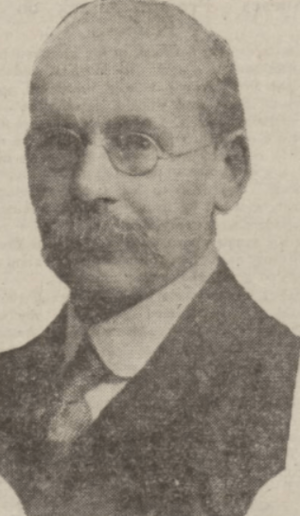J. N. Farquhar facts for kids
Quick facts for kids
John Nicol Farquhar
|
|
|---|---|
 |
|
| Born | 6 April 1861 |
| Died | 17 July 1929 |
| Occupation | Educational missionary, Orientalist |
John Nicol Farquhar (born April 6, 1861 – died July 17, 1929) was a Scottish teacher and missionary. He worked in Calcutta, India, and was also an expert in Eastern cultures and languages, known as an Orientalist.
He helped make a special idea popular called Fulfilment Theology. This idea suggested that Christianity, especially Jesus Christ, could be seen as the "crown" or completion of Hinduism. This idea first started in Madras with another missionary named William Miller.
Farquhar wrote many books about Hinduism. Some of his famous works include The Crown of Hinduism, A Primer of Hinduism, and Gita and Gospel.
Contents
About John Nicol Farquhar
John Nicol Farquhar was born in Aberdeen, Scotland, in 1861. He went to Aberdeen Grammar School and Aberdeen University. After working for a short time as a draper (someone who sells cloth), he decided to go back to school at age 21. He finished his studies at Oxford University.
In 1891, he was chosen by the London Missionary Society to be a lay educational missionary. This meant he was a teacher and missionary, even though he wasn't a priest. He was sent to India.
His Work in India
Farquhar arrived in Calcutta and began teaching in a place called Bhowanipur. He taught there for eleven years, starting in 1891.
In 1902, he joined the Young Men's Christian Association (YMCA). He first worked as a national student secretary. Later, he became a literary secretary, a job he held until 1923. While at the YMCA, he worked hard to help the organization reach more students. He gave lectures, made friends with students, and helped create many high-quality books and writings for India.
Farquhar left India in 1923 because of poor health. He spent the last six years of his life as a professor at the University of Manchester. He taught about comparative religion, which is the study of different religions around the world. He passed away in Manchester in 1929.
Understanding Fulfilment Theology
John Nicol Farquhar is well-known for popularizing Fulfilment Theology. This idea suggests that Christianity does not aim to destroy other religions. Instead, it aims to "fulfill" or complete them. In this view, Christ is seen as the "Crown" of religions like Hinduism.
The Idea Behind It
The main idea of Fulfilment Theology is that Christ came to complete not only the laws and teachings of the Bible but also the best parts of all the world's major religions. Farquhar believed that if all the good and true parts of other faiths could find their ultimate meaning in Christianity, then Christianity could be seen as the natural end point of religious growth.
He hoped that this idea would help Christians and missionaries be more understanding and respectful towards other religions. He wanted to build a good relationship between Christianity and Hinduism, rather than just seeing them as completely separate or opposing.
During Farquhar's time, many Indians were feeling a stronger sense of nationalism. They were also questioning Western Christianity. Some Christian missionaries saw non-Christian religions as wrong. Farquhar's Fulfilment Theology offered a different way of thinking. He believed that by seeing Christ as the "Crown" of Hinduism, progressive Hindus might be more open to Christianity.
In his book The Crown of Hinduism, published in 1913, Farquhar wrote that if Christianity is the ultimate religion, it must be the "climax" of all religious development. He felt it was important to show how Christianity connects to other faiths and leads people to Christ.
What It Meant for Other Religions
While Farquhar saw some truth in non-Christian religions, he also pointed out parts that Christianity could not accept. For example, he strongly disagreed with the caste system in India. He felt that equality, freedom, and justice were key parts of Christianity.
Even though Fulfilment Theology encouraged sympathy and respect for other faiths, it also suggested that over time, non-Christian religions would eventually fade away as people embraced Christianity.
Many experts, like Eric J. Sharpe, a professor of Religious Studies, have said that Farquhar played a big role in changing how Christians thought about other faiths.
Some Different Views
Not everyone agreed with Farquhar's Fulfilment Theology. For example, A.G. Hogg, a professor at Madras Christian College, had a different view. He believed that Hindus were searching for something specific, and Christianity offered something unique that they might not have been looking for initially. He thought that Christians could help Hindus realize their need for what Christianity offered.
Farquhar's ideas are still discussed today by many writers and thinkers in philosophy and theology. He is often seen as a key figure in the "Inclusivist School" of thought, which believes that truth can be found in various religions, but that Christianity offers the ultimate truth.
 | Selma Burke |
 | Pauline Powell Burns |
 | Frederick J. Brown |
 | Robert Blackburn |

